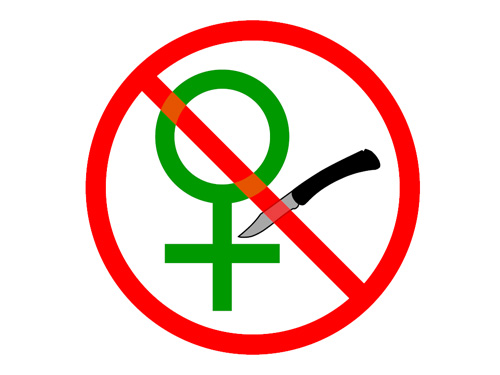
All social workers should receive statutory training around female genital mutilation (FGM), a report by the Home Affairs Committee has recommended.
The committee’s findings, published today, highlight a lack of understanding among frontline professionals – including people working in health, education and social care – as creating a major barrier to identifying and intervening in the practice of FGM.
The report argues that FGM must be treated first and foremost as a child protection issue, and that training – both in education and as part of continued professional development – should be “mainstreamed as part of the existing safeguarding framework”.
It also recommends that the government update its multi-agency practice guidelines on FGM and place them on a statutory footing, giving them parity with guidelines for handling cases of forced marriage.
Keith Vaz MP, the chair of the committee, said: “Successive governments, politicians, the police, health, education and social care sectors should all share responsibility for the failure in recent years to respond adequately to the growing prevalence of FGM in the UK.
“It is unacceptable that those with clear access to evidence of these crimes do nothing to help those at risk. Conversations and checking must become the norm,” Vaz added.
The committee’s inquiry heard evidence from a number of professionals, who reported worrying holes in frontline practitioners’ awareness of FGM and how best to deal with instances of it. This included incidents of children’s social care services refusing FGM-related referrals on the grounds of them not meeting intervention thresholds and social workers passing cases straight over to community organisations, as well as cases of overreaction in which girls had been removed from their families without further investigation or assessment.
The report advises: “All local safeguarding children boards need to develop clear and consistent risk assessment protocols so that an appropriate action plan is put in place for every child referred to social services. This is particularly the case if efforts to increase the number of referrals from the health and education sectors are to be successful.”
Responding to the study, British Association of Social Workers professional officer Nushra Mansuri said that the association “absolutely supports” the Home Affairs Committee’s call to put multi-agency guidelines on FGM on a statutory footing.
“This should be a minimum requirement in tackling FGM, supported by a number of other measures to ensure that girls who are at risk receive the best support available from all appropriate agencies and that the approach developed is holistic and proactive – focusing on both prevention and crisis intervention. FGM needs to be on everyone’s radar – including social workers – and can longer be treated as an issue on the periphery of child abuse,” Mansuri said.
Cllr Ann Lucas, chair of the Local Government Association’s Safer and Stronger Communities Board, said:
“FGM is child abuse and local authorities are determined to work with their communities to end the practice. Councils are already supporting local champions who make the case for stopping the practice of FGM. However, their work to change long-standing cultural practices is made more difficult when community or religious leaders continue to promote it.
Lucas added: “The Serious Crime Bill needs to be amended to address this issue by making it a criminal offence to encourage or promote the practice of FGM, not just the physical act of an individual assisting or carrying out mutilation. This is a necessary step in bringing cases against those who support FGM, even indirectly, and to help change attitudes towards this practice within communities.”


 Bournemouth, Christchurch and Poole
Bournemouth, Christchurch and Poole  Hampshire County Council
Hampshire County Council  Lincolnshire County Council
Lincolnshire County Council  Norfolk County Council
Norfolk County Council  Northamptonshire Children’s Trust
Northamptonshire Children’s Trust  South Gloucestershire Council
South Gloucestershire Council  Wiltshire Council
Wiltshire Council  Wokingham Borough Council
Wokingham Borough Council  Children and young people with SEND are ‘valued and prioritised’ in Wiltshire, find inspectors
Children and young people with SEND are ‘valued and prioritised’ in Wiltshire, find inspectors  How specialist refugee teams benefit young people and social workers
How specialist refugee teams benefit young people and social workers  Podcast: returning to social work after becoming a first-time parent
Podcast: returning to social work after becoming a first-time parent  Podcast: would you work for an inadequate-rated service?
Podcast: would you work for an inadequate-rated service?  Family help: one local authority’s experience of the model
Family help: one local authority’s experience of the model  Workforce Insights – showcasing a selection of the sector’s top recruiters
Workforce Insights – showcasing a selection of the sector’s top recruiters 

 Facebook
Facebook X
X LinkedIn
LinkedIn Instagram
Instagram
Comments are closed.